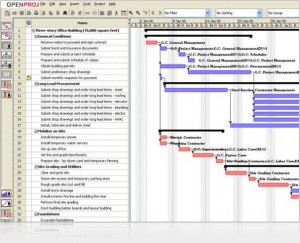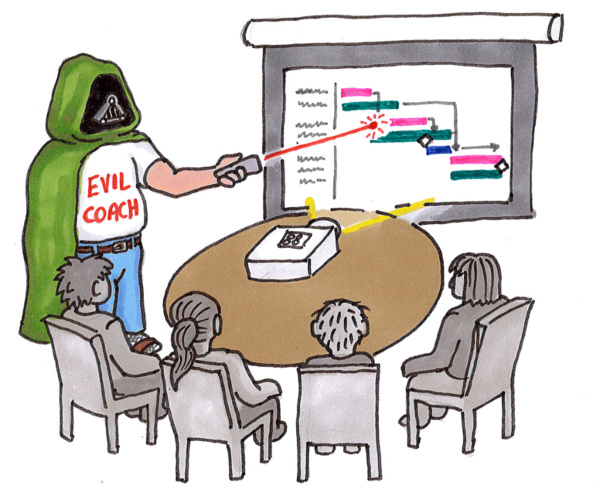Why do you think projects always are late? That’s because they are designed to be late. But I’ll let you in on a secret: late projects are run by wimps. Unstoppable projects are run by masters. Welcome to the philosophy of power estimation.
You see, estimation isn’t about guessing how long a project will take, it is about getting power. More budget = more power. The best way to get more budget is to leverage the fear of failure by insisting on perfect estimation.
The beauty with estimation is the more people you ask, the bigger the estimation gets. So ask lots of people. Use historical data to cross reference how much off a project can get and grow your estimation by π. Feel the power now?
Why Power Estimation
The “why” of power estimation is that the bigger the project, the more power to the project leader. In a zero-sum environment like any organisation with a budget, you also deplete competing managers of resources.
Pre-study power
A classical project starts with a pre-study, or inception as some say (cute). You may think that a pre-study is for investigating whether a project is feasible and therefore is not the start of a project. Wrong, that argument is just a smoke screen to get under the radar. In practice, an overwhelming majority of pre-studies results in a project so you’d better be there and get a hold on things.
A pre-study is the first step to fame. Strive to find out what is currently in vogue with upper management and use their vocabulary in your Power Point presentation. Listen in to coffee chit chat while hanging around the big boys. Nod and laugh out loud when appropriate.
If bald promises don’t resonate it’s a sign you’re addressing the wrong level. Climb higher up the hierarchy. Write down the latest three letter wordings from Forbes and Wired and infuse into your presentation.
You know you have the executive management by the balls when they nod at your mumbo-jumbo lingo without having a clue why. ![]()
Diagrams will help, the Gantt chart being a classical tool to create a feeling of knowing the future from a stapling of guesswork on top of each other. Look confident as you say that you have looked deeply into this. By all means, avoid any statistics – it will only look like you don’t know the exact number. 
Remember the golden rule of prestudy: the bigger the project the more important you look.
Implementation power
The next step is the implementation. It is important to spend your budget or your strategy of over-estimation may be exposed. That is usually quite easy but it is still an important skill.
First, your are certainly not the only project running so there is lot of possibility to spend money on context switching. Let them little resources dance between projects. Flatter key resources by saying that their competence is needed but keep the pressure up by stressing the importance of the deadline. Stressed resources will be too busy to ask questions.
Next, push the fixing of bugs to later in the project. By that, you get a huge pile of work to pull out whenever you risk not reach your spending goals. It is also a protection against criticism from competing managers that will try to cancel your project as they strive for the same power as you do. With a collection of bugs, you can always say that your are done except for the bug fixing and “final” testing. That will give you peace to go further to the next step, the version 2 hook.
The version 2 hook is a brilliant concept that will give you another project based on what you do in your current. To get a version 2 hook, you take some critical parts of your current project and push them into the next version, giving you a good start for another project. Now you hand over the steering of version 1 to your assistant project manager (rising the ranks fast will make them feel important). You are obviously the right man for the version 2 project since you are the only one who has knowledge of the vital parts of the project. Don’t forget to take key resources with you.
Real masters never finish
Once you get your project above a certain size, it becomes self moving. It’s like starting a freight train. Slow in the beginning, but as it passes all departments everyone wants to get their functions on it. It becomes unstoppable. You are too big to fail.
Summary
The purpose of Power Estimation is to gain personal power by over-estimating and under-delivering. Use the pre-study to gain importance and grasp as much resources as possible. The bigger budget the bigger your CV. Once your CV is big enough you can move on to a bigger company. Feel the power?




